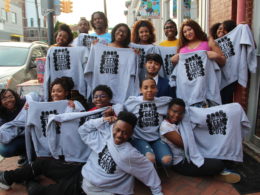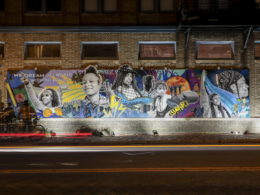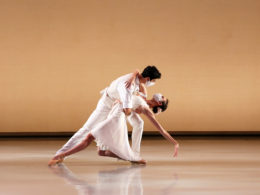Having emigrated to the United States in 1983 from her native Trinidad and Tobago, Beverly Hall was never sure how to identify herself. Born in a Caribbean country, she was taught growing up that she was West Indian, and because she did not see herself as descending from an African nation, the label “African American” seemed a misnomer.
Even today, while her American-born daughter comfortably embraces the label of Black, Hall perennially has a moment of cultural schizophrenia when she has to check the ethnicity box on government forms. Because she’s not African American, she opts for Other.
Hall shared her cultural dilemma at a recent forum hosted by Culture Encounters, a Richmond-based nonprofit organization that aims to broaden understanding and perspectives when it comes to cultural differences. Founded by Amma Gatty in 2015 originally as an arts organization for underserved kids in Richmond’s East End, Culture Encounters has grown into a broad-based organization that seeks to “bridge cultural divides.”
Originally from Ghana, arriving in the United States in 2002, Gatty’s newest brainchild is a series of forums called Conversations that Connect. The first in the series covered “Bridging Gaps Between Africans in the Diaspora*” on January 26 at the Dorey Park Recreation Center.
Six panelists – two African Americans and two descending from West Africa and Caribbean nations each – discussed their experiences in the United States: how they related to society, but more to the point, how they related to each other.
“Can you help me figure out who I am?” Hall asked the panel.
For close to two hours, the panelists shared their insights and experiences, punctuated with stories about their ancestral history, racism, stereotypes and misunderstanding, respectfully and sometimes humorously delivered to an audience of about 50 attendees.
Michael Ja-el Asante, an entrepreneur-educator originally from Jamaica, was first exposed to African American culture through the Elegba Folklore Society, an experience that broadened his understanding of American descendants of Africa.
“It made me take a closer look at the African continent, and I didn’t realize how big and diverse it was,” he remembers. “Growing up, we had been socialized to believe that we [West Indians] didn’t even have the same DNA [as African Americans].”

Getting to know his African American brethren created a sense of belonging. “I felt like ‘I’m here. This is me. This is where I come from,’” Ja-el Asante said.
Recalling that chasm that existed between the two groups, El Hadji Djibril Niang, an entrepreneur and native of Senegal, recalled when Jamaicans and Haitians asked if they could attend a local African festival. He wonders today what historical and cultural factors contributed to the schism between Blacks, surmising that the answers would provide insights into bridging the cultural divide.
Some of the division was perpetuated by various parts of society, including among Black people who accepted stereotypes about others, observed Alfred U. Powell, Jr., an educator. He recalled a job interview in which the interviewer disparaged the work ethic of African Americans, contrasting them to the more industrious Jamaicans, in his view.
“He was trying to create division between us,” recalls Powell. “If we delve into history, all of us have similar backgrounds and qualities, and we have to promote those.”
“Culture evolves based on the needs of the people,” added educator Nana Derby, a Ghana native. “We are willing to accept the brainwashing, [instead] we need to educate ourselves – what is the truth about ourselves?”
Raina Vann, a marketing and communications professional, observed that structural and institutionalized teaching has been a place of misunderstanding, even before social media helped to spread untruths. “The expectation of who you need to be is processed by the community, which keeps the stereotypes going.”
The panel was moderated by Vivian Addotey, a local healthcare professional.
Culture Encounters also sponsors a series of conversations over dinner at local restaurants called “Eat. Talk. Connect.” The next one is scheduled for February 21 at Buna Kurs Ethiopian Café. You can register and find more information here.
To get involved with Culture Encounters, visit its website at https://cultureencounters.org/. Find upcoming events here.
*[A diaspora is the dispersion of people from their original homeland.]










